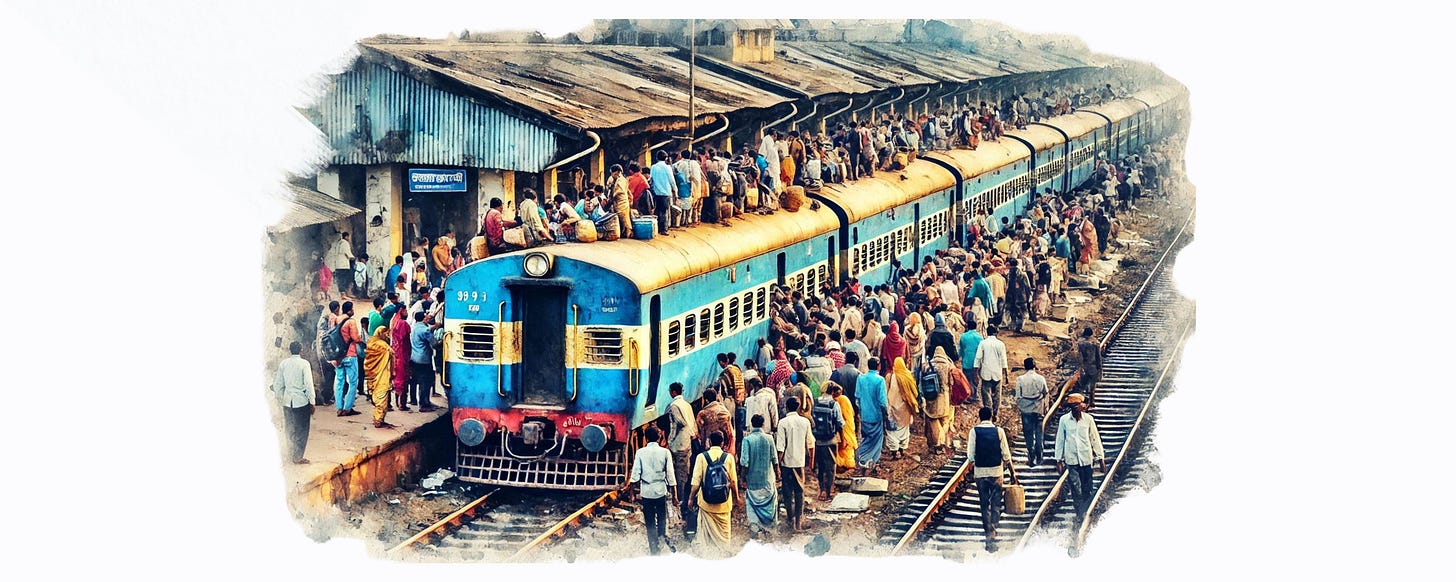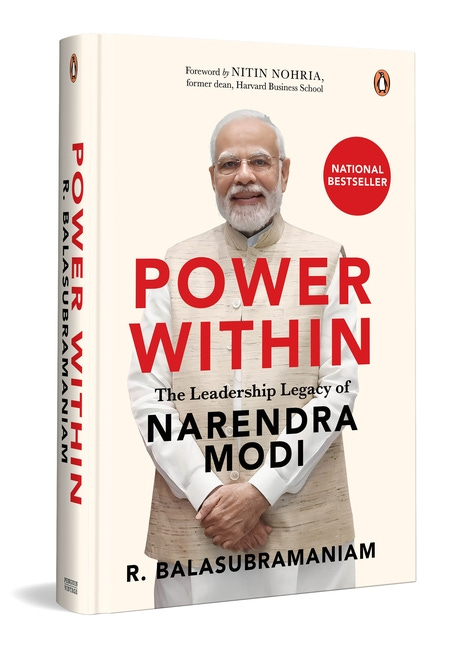#13 Reforms in Education and Railways: New Beginnings and Missed Opportunities
Welcome to the thirteenth edition of Policy Mandala. In this edition, we have structured it as a 2-1 structure, where we discuss 2 recent policies and 1 book recommendation. Enjoy reading!
Below, we discuss two recent policy updates from the past week(s) and analyze them for you: New UGC guidelines and Railway Reforms. Let’s go!
Analysis #1: India’s Education System: A Step Towards Flexibility
Ask anyone educated in India, “What’s the biggest problem facing the country?” Chances are, you’ll hear one word: Education.
From stressed-out parents to overworked teachers, confused students to skeptical employers—everyone in this education “supply chain” feels there’s a problem. Sometimes it’s clearly defined; other times, it’s just felt. But it’s there.
Last week, the University Grants Commission (UGC) decided to tackle one piece of this puzzle. They released draft guidelines aimed at shaking up the rigidity of degrees in India. The proposed solution? Flexibility in education.
The draft suggests some significant changes, including biannual admissions, flexible degrees, multiple entry and exit options, and Recognition of Prior Learning (RPL).
One standout proposal is the ability for students to hit a pause on their education with the possibility to continue later, without losing earned credits. This means learners can accumulate certifications, diplomas, or degrees at their own pace. Under the National Credit Framework (NCrF), students will also be able to transfer credits across institutions and even between online and offline modes of study. Think of it as “Netflix for degrees”—pick up right where you left off, no strings attached.
Recognition of Prior Learning (RPL) adds further sweetness to the reform proposal. It allows skills gained through workplace training or informal learning, to be convertable into academic credits. This could bring a seismic shift in how technical and vocational skills are valued.
Add to this biannual admissions and flexible degree structures, and you have a system designed to reduce the dreaded “gap year” while encouraging exploration across disciplines.
These changes tie directly to the vision of NEP 2020: a more flexible, skill-oriented, and inclusive education system. And let’s face it—the numbers highlight just how urgent this shift is. According to the India Skills Report 2023, only 50.3% of Indian graduates are employable, largely because many lack industry-relevant skills, and this reasoning is strengthened by India’s abysmal ranking of 116 out of 174 countries on the World Bank’s Human Capital Index 2020, underlining the pressing need for quality education that prepares students for real-world challenges.
But are flexible degrees the solution? Can this model work in a nation full of degree seekers?
Well, we believe: Yes.
Look no further than India’s Chartered Accountancy (CA) program for inspiration. Run by an industry body, ICAI, it emphasizes rigorous, skill-based evaluations over classroom hours. Imagine this model applied to other disciplines—a dynamic, credit-based system that prizes skills over seat time.
Needless to say, challenges remain.
From standardizing credits across diverse institutions to the struggle of smaller or rural colleges to match the flexibility of urban universities. Due to the limited capacity of state governance systems, administrative inefficiencies and recurring issues like exam paper leaks also raise concerns about implementation. The readiness of the employer ecosystem to shift from a college placement model to an open hiring model will also take some time, especially for mega recruiters.
Right now, the draft is open for public feedback, offering everyone a chance to shape this potential revolution in education. Whether these reforms succeed in moving us from degree obsession to skill obsession will depend on how well they are executed.
So, here’s the million-dollar question: Is India ready for a system that values skills over degrees?
Let’s hope the answer is “yes,” because the future of education isn’t about the years spent in classrooms—it’s about the value of the skills carried into the world.
Analysis #2: Railway Amendment Bill 2024: India’s Missed Opportunity in Reform
In a democracy, the power to decide lies with the cabinet. This cabinet shapes policies and steers the government in a particular direction.
But when expertise is needed, they appoint committees—groups of specialists tasked with studying the system, identifying challenges, exploring solutions, and drafting recommendations. These recommendations are ideally translated into policies.
For Indian Railways, there have been ten such committees in the last three decades. The current government has contributed two of its own. We expect this as a showcase of intent and need for expertise to drive Railways into a better shape in service of the nation.
These committees have pitched bold ideas: establishing an independent tariff regulator, opening the services ecosystem to private players, granting financial autonomy to railway zones, setting higher service benchmarks, and overhauling internal management systems. Financial reform proposals abound, too—monetizing assets, pushing Public-Private Partnerships (PPPs), and rationalizing passenger tariffs.
This week, the Lok Sabha passed the Railway Amendment Act 2024, hailed by the cabinet ministers as a leap forward. Media houses from The Hindu to Swarajya joined the applause.
But here at Policy Mandala, we dig deeper.
Yes, the Act merges two laws and simplifies some bureaucratic processes, but transformative? Not quite. Let’s break it down:
Passengers? Nothing changes for them.
Railway employees? Zero impactful reforms.
Bureaucracy? Slightly tidier, but still crawling.
The Act repeals the century-old Railways Board Act of 1905 and combines its provisions with the Indian Railways Act of 1989. The result? Same rules, the same processes, just a different legal wrapper. Bold reform? Not even close.
This is disappointing for an entity that is the lifeline of the nation. Indian Railways transports 8 billion passengers annually, employs five times as many people as Reliance—India’s largest company by market capitalization—and plays a critical role in national development. For a nation aspiring to become Viksit Bharat in the next two decades, we need reforms that are disruptive, not cosmetic.
Imagine an independent regulator ensuring safety compliance and welcoming private players to inject competition and quality. Picture decentralizing power to the 17 railway zones, eliminating inefficiencies, and introducing specialized experts in logistics, AI, and operations. If we can land a spacecraft on the moon, surely we can fix train scheduling too.
That said, reforming Indian Railways is no small feat. It’s a behemoth with a massive, unionized workforce, operating in a bureaucratic maze that still considers paperless offices a novelty. But let’s be clear: reform isn’t optional. For India to rise as an economic powerhouse, railways must lead the way in connectivity, efficiency, and sustainability.
The Railway Amendment Act 2024 may have missed the mark, but the story isn’t over. A modern, efficient railway system is essential for India’s growth. Let’s keep advocating for meaningful reform because the nation’s progress is only as smooth as the tracks its trains run on—and right now, we’re hitting too many bumps.
Book Mandala
In this section, we suggest a book to be read/listened each week, for the inner policy enthusiast in you :)
Book: Power Within
Author: Dr. R. Balasubramaniam
About Book: Power Within by R. Balasubramaniam is a profound exploration of leadership. From anecdotes to leadership frameworks, from stories to value leadership, the author unravels the essence of self-awareness and how it shapes impactful decision-making. The book challenges readers to reflect on their values, choices, and actions, making it a deeply personal and transformative experience. It’s a guide to discovering the strength within to create meaningful change in the world.
Our Take: Reading Power Within felt like a leadership mentor training us on different dimensions of value-driven leadership. The way Dr Balu connects everyday challenges to larger life lessons is profound, especially leveraging Indic principles from spiritual and inspirational texts. One instance about navigating dilemmas with integrity struck a deep chord—reminding us how small actions can define leadership. The book doesn’t just offer lessons; it challenges you to think, introspect, and act with purpose in your own life. A must-read for anyone seeking clarity and direction!
Hope you liked today’s Policy Mandala!
We believe nation-building needs a community of changemakers—so we’re creating Bharat Mandala, an ecosystem for impact. Be part of our journey here!





